Using herbal medicine to treat epilepsy and severe lead poisoning in children
A 3-year-old patient in Thanh Hoa suffered from severe lead poisoning and was admitted to the National Children's Hospital in critical condition. The cause was due to the child's parents giving him herbal medicine of unknown origin to treat epilepsy.
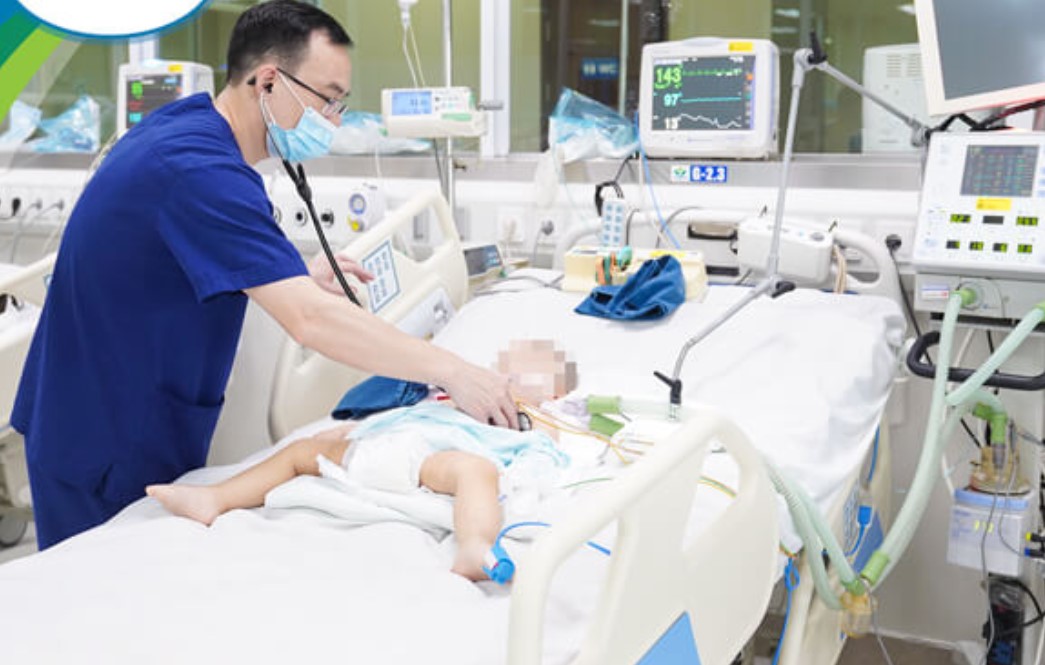
Doctors at the National Children's Hospital examine a child patient.
According to the family, the child had a history of epilepsy since he was 6 months old. Three months after being hospitalized, the family noticed that the child had more seizures. However, instead of following the treatment instructions of the specialists, the family bought herbal medicine of unknown origin in pill form for the child to take. After taking the medicine, the child's seizures decreased, but for about a month now, the child has had behavioral disorders, crying for no reason, and often complaining of headaches...
At this time, the family rushed the child to the National Children's Hospital in a state of convulsions, severe vomiting, impaired consciousness, and pale skin. With suspicion of lead poisoning, the doctors ordered the necessary paraclinical tests and blood lead quantification tests. The results showed that the child had severe lead poisoning with a blood lead concentration of over 100 µg/dL (the accepted threshold is below 10 µg/dL). In addition, the child also had severe anemia and ventricular dilation.
The child is currently receiving intensive treatment but is still in critical condition with a poor prognosis.
Here, doctors have received children with lead poisoning in similar circumstances. That was a 9-year-old child who had epilepsy since he was 6 years old. Seeing that the child was having frequent seizures, the family bought orange medicine of unknown origin for the child to drink.
After taking the medicine, the child's seizures did not decrease but increased, accompanied by vomiting, headache, and gradual drowsiness. The child was given emergency care at Nghe An Obstetrics and Pediatrics Hospital, then transferred to the National Children's Hospital in critical condition.
How dangerous is lead poisoning?
Dr. Dao Huu Nam, Head of the Intensive Care Department, Tropical Disease Center, National Children's Hospital, said: Lead is a heavy metal, very toxic, affecting all human organs, especially children. When entering the body, this metal can cause many neurological, cardiovascular, hematological, stomach, intestinal, and kidney diseases and it will take decades to eliminate the lead.
Lead poisoning can cause serious consequences for the health and development of children with symptoms including: agitation, convulsions, drowsiness, coma, paralysis; slow cognitive and mental development, hearing loss, loss of learning skills, changes in behavior, fatigue; Vomiting, abdominal pain, loss of appetite; Pale skin, weak body due to anemia.
In addition to the obvious symptoms above, children with lead poisoning also have many subtle manifestations that can only be detected by blood lead quantitative tests.
Dr. Nguyen Tan Hung, Deputy Head of the Department of Emergency and Anti-Poison, National Children's Hospital added: There are many causes of lead poisoning in children such as exposure to polluted environments from industrial zones, water sources contaminated with lead, wall paint, gasoline contaminated with lead, batteries, plastic toys with lead paint, food cans with lead solder... Especially the use of herbal medicines commonly known as orange medicine of unknown origin, this is one of the leading and most common causes of lead poisoning in children.
"Parents should be alert and trust in medically proven treatment methods. Do not listen to or follow unverified word-of-mouth methods or use drugs on your own, especially orange medicine or herbal medicine of unknown origin or without a license. Children with chronic diseases must comply with treatment and return for check-ups at reputable medical facilities on time," Dr. Hung advised.
Sharing the same view, Dr. Huu Nam added that to prevent lead poisoning in children, parents need to practice good personal hygiene for their children such as regularly washing hands, cutting nails, instructing children not to put their hands and objects in their mouths; Clean the living environment, limit children's exposure to toys that are not of guaranteed quality and may be contaminated with lead and other heavy metals. At the same time, ensure a reasonable diet for children. If parents suspect their children have lead poisoning, they should take them to specialized medical facilities for timely examination and treatment.
Source: https://www.baogiaothong.vn/bat-ngo-nguyen-nhan-hang-dau-gay-ngo-doc-chi-o-tre-nho-192240424221451765.htm




![[Photo] Many young people patiently lined up under the hot sun to receive a special supplement from Nhan Dan Newspaper.](https://vphoto.vietnam.vn/thumb/1200x675/vietnam/resource/IMAGE/2025/5/18/6f19d322f9364f0ebb6fbfe9377842d3)
![[Photo] Ready for the top competitions of Vietnamese table tennis](https://vphoto.vietnam.vn/thumb/1200x675/vietnam/resource/IMAGE/2025/5/18/9c547c497c5a4ade8f98c8e7d44f5a41)
![[Photo] Party and State leaders attend the special art program "You are Ho Chi Minh"](https://vphoto.vietnam.vn/thumb/1200x675/vietnam/resource/IMAGE/2025/5/18/6895913f94fd4c51aa4564ab14c3f250)







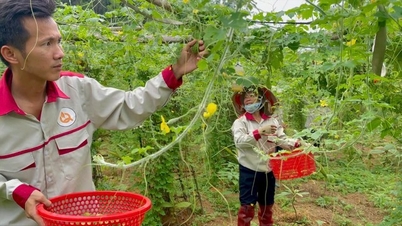

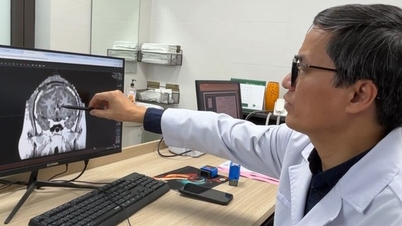
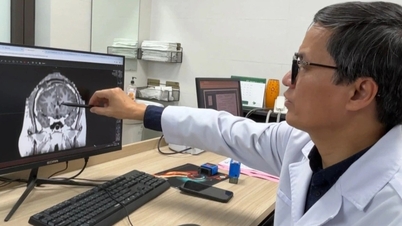



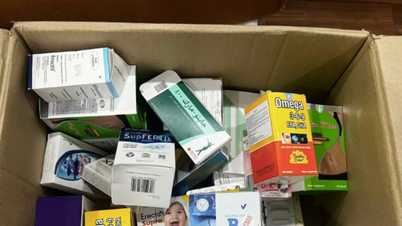


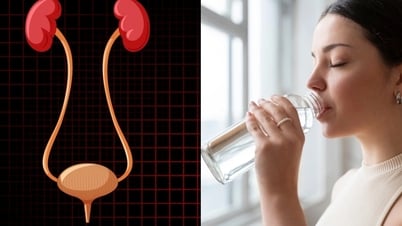
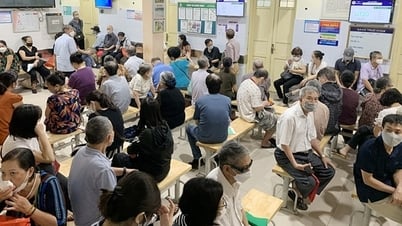
























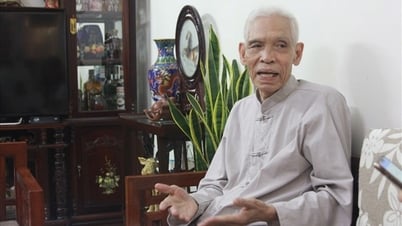





































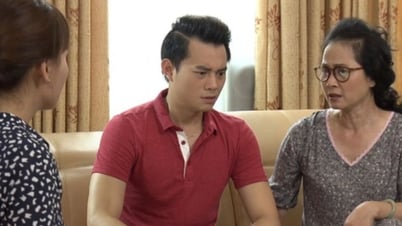













Comment (0)